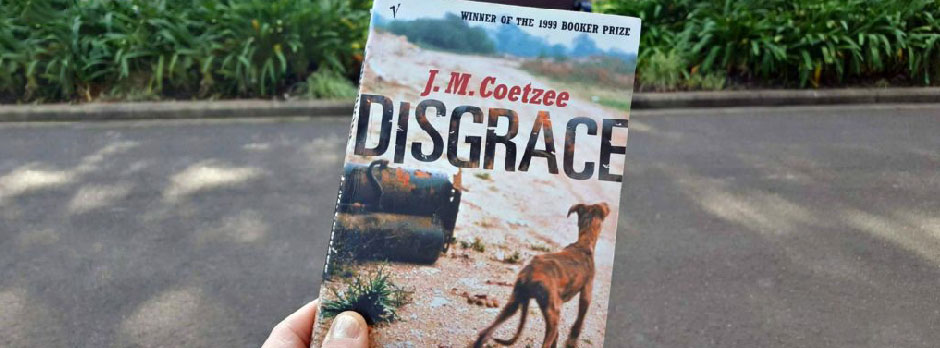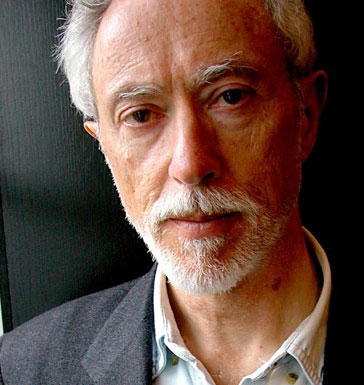
Hello, my dear subscribers! Today we are back to our favorite topic – book reviews. I haven’t managed to finish anything worth writing about for a while, but now I’m happy to tell you about the latest novel I finished – “Disgrace” by J. M. Coetzee.
For this novel, the author was awarded the Booker Prize in Literature and received a Nobel Prize in Literature four years later. Of course, I have no blind trust in any awards, even if they are so honorable as the ones I mentioned. Still, I am always curious about literature and authors who managed to get international recognition. This time, I was just blown away by the power of this novel, and I want to tell you a little bit more about it in the current blog.
Who is J. M. Coetzee?
 Ok, let’s start with the author of the novel. John Maxwell Coetzee was born in 1940 in Cape Town to Afrikaans parents. As a kid, the future novelist faced a terrifying picture of apartheid that was very radical back in those years. Even when the South African Republic was proclaimed in 1961, the factual powers were still mainly held by the white minority till the mid-90. All those social issues and clashes, the fight of local people for their rights and independence became major themes of Coetzee’s future novels, essays, and short stories.
Ok, let’s start with the author of the novel. John Maxwell Coetzee was born in 1940 in Cape Town to Afrikaans parents. As a kid, the future novelist faced a terrifying picture of apartheid that was very radical back in those years. Even when the South African Republic was proclaimed in 1961, the factual powers were still mainly held by the white minority till the mid-90. All those social issues and clashes, the fight of local people for their rights and independence became major themes of Coetzee’s future novels, essays, and short stories.
In the early 60s, Coetzee, who already graduated from the University of Cape Town and received a degree in arts, traveled to London, where he worked as a programmer for IBM. In several years, he moved to the University of Texas in Austin, where he earned his Ph.D. From the very beginning, Coetzee planned to move to the US and acquire citizenship. However, he never actually succeeded in it because his involvement in Anti-Vietnam War protests had adversely affected gaining citizenship. In 1972, Coetzee moved back to South Africa, where he became a lecturer at the University of Cape Town. In 1974, the first novel “Dusklands” was published. Coetzee had been working as a writer and lecturer for more than 30 years until he moved to Australia in 2002.
However, the most productive time in the writer’s life was closely linked with his native country. Many of Coetzee’s novels were dedicated to the themes of colonialism, the figure of the outsider who opposes the oppressor, life, and culture of South Africa. As a long-time animal rights activist, J. M. Coetzee frequently included themes of cruelty and violence against animals. Like many of his heroes, Coetzee was known as a modest, disciplined man who always avoided public appearances and any fuss around his persona. For instance, he did not come to pick either of two Booker Prizes, which he was awarded.
“Disgrace” by J. M. Coetzee
“Disgrace” is the eighth novel by J. M. Coetzee, which was first published in 1999. It is probably the most well-known novel, along with Waiting for Barbarians, which was published in 1980. Most critics believe that “Disgrace” was the primary reason why the author was awarded a Nobel Prize in Literature in 2003.
After I finished the book, I was blown away by it, and I’m pretty sure that the Nobel Prize Committee was also blown away by it. So let’s talk about the novel itself and why it is so powerful. For those who prefer to read it by themselves, I recommend stopping here because there will be some spoilers too.
The novel’s main protagonist is a middle-aged man who works as an English literature teacher at the University of Cape Town. However, the main hero is not the author’s reflection, but rather the one to whom this novel is addressed. David Lurie, the protagonist, is a white divorced man who is living through a life crisis. He is a teacher of romantic literature, and from the very beginning, Coetzee describes him as the one who despises his life and, at the same time, a pretty clinical character. The conflict between David and University executives results in David’s resignation. However, Coetzee did not sympathize with his character because his failure was not more than David’s arrogance and self-pity.
Later, the main character travels to his daughter’s farm, where he faces the country’s real-life that he refused to see before. In such a way, David’s character becomes a universal prototype of a mediocre white male who belongs to the “civilized society” in front of the wide panorama of rural life in South Africa. Coetzee depicted the clashes between David’s character and the society and nature he never encountered before as a complicated but necessary way the person should make towards understanding and humility.
Final Thoughts
Coetzee is one of those rare authors who can create a truly staggering masterpiece using only his modest and partly discreet language to describe people and events that happen here and now. Even when Coetzee is trying to step away from specific events and places, as he did in “Waiting for Barbarians,” his writing remains close to life, honest and powerful as always.





